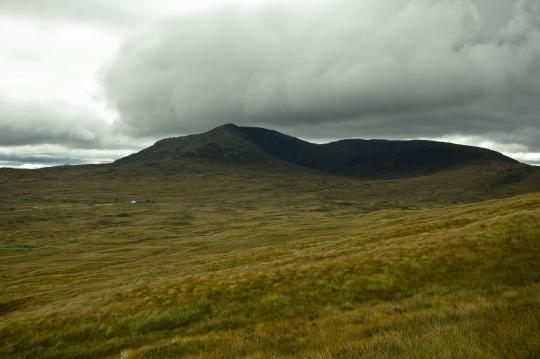#rannoch
Text
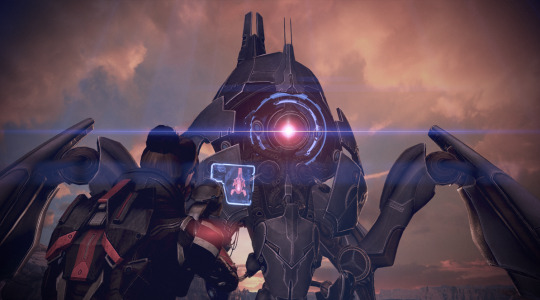

Replaying ME3. I forgot how insane Shepard was for doing this
#mass effect#commander shepard#mass effect 3#reapers#rannoch#olivia shepard#It's just like jesus shepard
15 notes
·
View notes
Text
Tali'Zorah had gained weight, and she didn't know how to feel about it.
As she stared into the mirror, she recalled her slimmer figure that she'd had for most of her life, and with it, the pangs of hunger. On the Flotilla, food sanitation was too big of a contamination risk, so the diets of every quarian consisted largely of vegan nutrient paste. It was not filling, and it was far from exciting. It was not impossible to safely decontaminate an actual dish, but logistically, it was too taxing en masse.
When Rannoch was recolonized, the geth were instrumental in helping acclimate the quarian populace to various pathogens, and in establishing stable crop yields. The quarians could chew again. They could cook. They could feast. And as a result, many visibly gained weight, including the Admiral of Domestic Engineering. And she didn't know how to feel.
Billboards, ad cylinders, commercials, especially those made on Earth and Palaven, seemed to worship weight-loss. Tali wasn't exactly a fan of these companies, but the exposure was wearing her down. Turning, she took note of her softer belly and wider torso. She very much had what humans called "love handles." Additionally, her arms were less taught, and her thighs and calves had thickened. Her face had even become that much rounder.
Was she too heavy? Was it unattractive? Was--
Tali's musings were interrupted when the bedroom door opened. Turning around, her gaze met John's. His body shone with sweat; he must have been working in the garden again.
Almost as soon as he saw her, he smiled. Tali loved that smile. It was earnest, and kind, and always, always full of love. Without thinking much, the quarian strode toward him, closing the distance and hugging him tightly. She didn't care that he stank a little, or that his body was stiflingly hot in the cool air of the room. She loved the way he looked at her, the way he smiled at her. It wasn't any less since they'd first gotten together, and that's how she knew that her weight was meaningless.
On the subject of weight, John had gained some of his own over the years, and she was far from complaining. His belly and triceps had put on some looser material, the definition of his muscles (which he still very much had) becoming somewhat obscured. Having been surrounded by pipes, circuits, metal walls, and tight suits her whole life, Tali was grateful to have soft, organic tissue to snuggle. If anything, their accumulated pounds were indicative of peacetime, of rest they had earned.
John quickly returned the hug, giving a gentle kiss to the top of his wife's head. "I appreciate the hug, but you're awfully quiet. Everything okay?"
"Everything is perfect," she replied. She pulled away just enough to look at him. "Although, my husband just covered me in dirt and sweat. It would be incredibly irresponsible of him not to let me shower with him."
John smirked, and in a swift motion, quickly picked up his wife in a bridal hold. "I think I can oblige."
#shepard x tali#commander shepard#mass effect#tali'zorah vas normandy#post canon#shali#body posititivity#capitalism is exploitative#rannoch#help I keep finding a new typo every time I read it
83 notes
·
View notes
Text
Rannoch researches - Part 1: Astrophysics, formation of the Tikkun system and origin of life on Rannoch
[Potential spoilers for the Mass Effect trilogy]
Alright, I finally, finally made it to the Rannoch arc of ME3 - and while it absolutely freaking destroyed me on an emotional level, I was nevertheless very excited to see the Quarian homeworld in person. I mean, it's one thing to just read the entries on the wiki, but virtually being there and flying around in the star system is something entirely else.
As you might know, I'm very interested in any lore about the Quarians and Geth, specifically everything that's related to Rannoch's culture previous to the Morning War, and being able to set foot on the site is like a dream come true for me. (Having an idea of the place you're researching just immensely helps with visualization. xD)
However, being my nerdy self, I decided to try and explore Rannoch's history a little further, beyond the Morning War and even the advent of Quarian civilization - that is to say, the history of Rannoch's star system. I'm aware that this topic might be a little dry to some people, since it has nothing to do with ME's story as a whole and basically just covers the scientific background. However, after researching about it, I must say that I find it to be quite fascinating, and I certainly learned a lot of things about astrophysics, the origin of life, and the universe as a whole along the way.
Disclaimer: I should mention that I'm neither an astrophysicist nor a chemist, and all my knowledge about the topic stems from self-study. Therefore, it's possible that some of my conclusions and projections might be scientifically inaccurate; if someone has more expertise in these fields than me, feel free to point any error out to me. For the sake of understandability, I will try to explain all facts as simply as possible.
The age of the Tikkun system
Before actually being able to travel to the system in Mass Effect 3, Legion already gives us a little trivia about Rannoch and its star in ME2. When Shepard inquires what the Quarian homeworld is like, they respond with:
"It is more arid than Earth. The star is older and more orange than Sol."
In combination with the information that Rannoch's star Tikkun has about 90% of the Sun's mass and half of its luminosity (which we learn from the planet's description), we can conclude two things:
Tikkun is older than 4.6 billion years (the approximate age of our Sun).
Tikkun is a K-type main-sequence star, sometimes also called orange dwarfs due to their emitted light being in the orange spectrum.
From an astrophysical perspective, these two pieces of information complement each other nicely: Since K-type stars are generally more stable than stars of the G-class like our Sun, they also have longer lifespans (about 17 - 70 billion years, in contrast to the estimated 10 billion of the Sun), which means that a K-type star that formed long before our Sun could still exist without issue.
Also, despite being colder and less luminous than G-type stars, K-type stars are considered to be of particular interest in the search for extraterrestrial life, if only for the reason that their extended lifespan gives organic life more time to develop. Furthermore, K-stars emit less total UV light and ionizing radiation than G-type stars, which are known to be damaging to DNA and thus would hinder the development of extraterrestrial life.
However, it's still debated how beneficial these presumed advantages actually are: Due to their lower heat emission, planets would have to orbit closer to K-type stars to have habitable temperatures, which might offset any benefit from a lower UV output. Also, while the total UV radiation is lower, K-type stars emit higher levels of X-rays and far ultraviolet light (F-UV) during their early lifespan, which may act sterilizing and destroy any atmosphere, thus preventing the emergence of organic life (or at least significantly delaying it).
Still, there is a factor that might have made it possible for life to develop on Rannoch after all: metallicity. Metallicity denotes the abundance of heavy elements in a star, although the term "metals" is a bit misleading - it's not about metals in the actual sense, but rather every element that is heavier than hydrogen and helium. Hydrogen and helium are the two lightest elements and the first to exist immediately after the Big Bang (in addition to small quantities of lithium), and all other elements were created by nuclear fusion in stars and then ejected into interstellar space by supernovae. Consequentially, that means the older a star is, the less heavy elements it contains (there are exceptions to this rule, however).
Now, the interesting part about this is that very recently, scientists have found out that planets orbiting metal-poor stars might actually be more habitable to organic life: Although metal-poor stars emit more total UV radiation compared to metal-rich stars, the spectrum of the emitted UV light strongly differs. Metal-poor stars emit more short-wave UV-C light, while metal-rich stars predominantly emit the longer-waved UV-B light. The difference is that while UV-B light acts destructive to any ozonosphere, UV-C light actually supports the formation of an ozone layer. It may seem like a bit of a paradox that a certain spectrum of UV light benefits the formation of an atmosphere protecting the planet from cytotoxic UV radiation, but what we can surmise is that metal-poor stars are generally more life-friendly.
However, Rannoch's star system potentially being very old by galactic standards introduces yet another problem: At first, scientists suspected that metal-rich stars are overall more likely to possess planetary systems, particularly such that include terrestrial planets. This was probably due to the assumption that since heavy elements were not that abundant in the beginning of the universe, terrestrial planets were also not very common back then, although further observation has shown that smaller exoplanets exist around stars with a range of metallicities. Evidence suggests, however, that large gas giants are more likely to form around planets with high metallicity - perhaps because cores containing a large amount of heavy elements exert a stronger gravitational force on light gases.
Still, the issue remains that the cores of planets which formed during the early phase of the universe most likely contain next to no heavy elements. This is important because the iron and nickel core of Earth is one of the main reasons life was able to develop on our planet in the first case: The heavy elements in the core are responsible for Earth's magnetic field, which stabilizes the atmosphere and protects it from being blown away by solar winds. So, presuming that Rannoch's core is composed of a larger portion of light elements, it would have a weaker magnetic field than Earth, which in turn would make it harder for the planet to develop a life-essential atmosphere.
Either way, we can surmise that the question whether a planet is actually habitable depends on various different factors, and it once again proves what a delicate balance has to be met for organic life to develop. In case of Rannoch, it's worth mentioning that Rannoch's atmosphere is stated to be slightly thinner than Earth's (0.93 atm). So, if Tikkun is indeed an old, metal-poor star, perhaps the influence of the increased UV-C radiation is just enough to offset all other atmosphere-depleting factors, like F-UV radiation, x-ray radiation, and solar winds. Also, it's noted that Haza, the only gas giant of the Tikkun system, is comparatively small; thinking back to the observations that large gas giants predominantly form around stars with high metallicity, this might suggest that the percentage of heavy elements in Haza's core is pretty low, which in turn could hint at the system's high age.
Life based on dextro amino acids - proof of Rannoch's age?
However, there might be another, even more convincing indicator that Tikkun is pretty ancient by astronomical standards: As we know, life on Rannoch is based on dextro amino acids, including the Quarians who are the only dextro species in the galaxy aside from the Turians, with all others being levo amino-based. For a long time, scientists have been speculating why lifeforms on Earth consist pretty much exclusively of L-acids (levo), and why there are sugars (e.g. glucose) consisting of D-molecules (dextro), but no proteinogenic (protein-creating) acids. Theoretically, the chemical construction of D- and L-acids is exactly the same - the only thing that's different is the way the molecules reflect light, which is clockwise for D-acids and counterclockwise for L-acids (a property known as "chirality"). This may not sound like much, but it has major consequences: As a result, D- and L-acids are entirely incompatible with each other, acting like image and mirror image. (Just as a side note because I keep hearing that Quarians consist of "completely different" molecules than humans and thus are completely different lifeforms: Broken down to their chemical components, D- and L-acids don't differ from each other at all - it's basically the same, just the other way around.)
Meanwhile, the American chemist Ronald Breslow has proposed that the reason why L-amino acids are dominant on Earth has something to do with electromagnetic radiation: Going by the panspermia hypothesis, the molecules of life spread through the universe by means of meteoroids, asteroids, comets, and other matter. However, on their way through space, these molecules are subjected to the radiation of neutron stars and pulsars, and it's been observed that dextro amino acids get destroyed more easily by neutron star radiation than their levo counterparts. Thus, the meteoroids that fell down on Earth contained more L-acids than D-acids. Since amino acids of the same kind paired up with one another and became crystallized, the only ones that remained were those that couldn't find any partner: the excess L-acids, which were dissolved in the water and eventually became the components of organic life.
Now, one thing to keep in mind is that neutron stars and pulsars are objects that form after a dying star turns into a supernova. Logically, this would mean that the older the universe gets, the more neutron stars are created, and consequentially, their number must have been lower during the early stages. If this is true, the radiation hazard must have been lower as well, and presuming that the quantity of D-amino acids contained in a meteorite exceeded those of L-acids, it could've led to life developing along an alternate path on a different planet - even Breslow himself considered it a possibility that life based on D-acids and L-sugars might exist elsewhere in the universe.
This would lead to the conclusion that the Quarians as a species are way older than humans - and potentially, the majority of the other races in the galaxy. What makes this even better is that it actually lines up very nicely with the comment from Erinya's bondmate (the Asari you meet on Illium during the sidequest "Medical Scans" in ME2) that Quarians have "old souls". (I'm not entirely sure how Asari are able to determine how old someone's soul is, but then again, I never quite understood their esoteric mindset. xD) Going from this, it might mean that the Turians are another "old" species of the galaxy, since they developed based on dextro acids as well - either way, I quite like this theory, since it not only fits in with the lore but would also make sense from a scientific point of view.
Rannoch's position in the Milky Way
However, as with pretty much all good theories, there is just one problem: Rannoch's position in the Milky Way. In 2016, scientists created the first global age map of the galaxy based on observations of 100,000 red giants, coming to the conclusion that the oldest, most metal-poor stars are located in the galaxy's center and in the halo (the roughly spherical space surrounding our galaxy, acting as a kind of "border zone"). Furthermore, they observed that with increasing distance from the galactic center, the stars of the disk (the "flat" level that the spiral arms are on) get younger the farther away they are - and with the Tikkun system being located at the disk's very edge, this puts my theory in a somewhat precarious place.
However, at the same time, the stars' age increases the greater the vertical distance from the galactic disk is (to put it simply, the oldest stars are found above and below the disk). At first, this led me to the suspicion that the Tikkun system might actually be located in the halo, since the galaxy map of Mass Effect is only in 2D and doesn't account for the 3D aspect. However, I was stopped short by the realization that the halo contains no interstellar medium - that is to say, clouds of gas and dust which are essential for the formation of solar systems. With nebulae (like the Perseus Veil) also being part of the interstellar medium, this makes a localization of Tikkun in the halo extremely unlikely. Still, one thing I did find out that Tikkun is probably located "above" most of the rest of the Milky Way: Due to the dented shape of the disk (which is suspected to be caused by the rotating movement of the galaxy's center), the regions at the outer edge of our galaxy are significantly bent upwards and downwards. I actually managed to find a three-dimensional map depicting the position of our solar system, making it possible to deduce the position of the Tikkun system in relation to it, which would most likely be located near the "raised" partition of the disk (see image below).

This 3D map of the Milky Way galaxy shows the position of our Solar system, and if compared to this Mass Effect galaxy map, we can conclude that the Tikkun system would be somewhere on the right, where the "ridge" is (Edited image; original picture source)
Still, that doesn't mean my speculations are completely off the table: In a more recent study from 2023, a team of scientists did a metallicity profile of the Milky Way's stars, starting from the galactic center all the way to the outer rim. During their survey, they not only observed a spike of metal-rich stars around 23,000 light years from the center (with 26,000 light years distance from the center, our solar system lies quite close to it), but also an unusually high quantity of metal-poor stars about 50,000 light years from the galactic center.
Granted, there is a correlation between the age of a star and metallicity, but as I already pointed out above, this doesn't always have to be the case. In fact, each of the three star populations - young, intermediate, and old - displays the trait of a higher metallicity near the center and a lower metallicity at the outskirts. Then again, the oldest, most metal-poor stars of the galaxy are also found in the center, and the research group has acknowledged that one reason for the steep decrease of metallicity near the outer edge might be that our estimates of the extent of the Milky Way's disk are off. Either way, a diagram from the study shows that old stars still exist up to a radius of 12 kpc (approx. 40,000 light years), with their luminosity decreasing the farther away from the center they're located. In the study, "old stars" were classified as those with an age of 8-12 GYR/8-12 billion years, so this would be my rough estimate for the age of the Tikkun system as well.
Another explanation for the rapid decrease of metallicity near the outer rim that has been proposed is the collision with a former, metal-poor dwarf galaxy. This galaxy would have been engulfed and later absorbed by the Milky Way, with its metal-poor gas being used as the building material for new stars. If this was true, perhaps the Perseus Veil might even be a remnant of this collision, consisting of gas formerly belonging to this dwarf galaxy. Going by the description from the Codex, the Perseus Veil is an opaque nebula in the colors of "purple and gold", suggesting that it might consist of a combination of emission nebulae (those that emit light in the visible spectrum, hence the striking colors) and dark nebulae. Dark nebulae absorb the wavelengths of light visible to the human eye, effectively concealing any stellar objects behind them (still, objects obscured by them can be observed with radio or infrared telescopes, which is a little curious considering that the Codex entry says "the Veil's total opacity prevents Council intelligence from surveying Geth activity"; however, it's possible that the Geth are using technology to disrupt those frequencies, not wanting organic races to spy on what they're doing). Dark nebulae in particular are also known to be the birthplace of many stars and planets, which makes them a likely candidate for the origin of the Tikkun system.
However, there is also the possibility that the Tikkun system might not be located in, but rather behind the nebula. The form of dark nebulae tends to be very irregular, with no clearly defined boundaries and far-ranging, serpentine shapes. In the night sky, they appear as dark patches, which is a phenomenon we know from the Great Rift, clouds of interstellar gas and dust obscuring much of our view from the Milky Way (for avid star gazers, this is indeed the dark band that stretches across the "bright band" of the Milky Way). This is due to the Rift being located between the inner edge of the Orion arm (which is the spiral arm where our Solar System is located), and the Sagittarius Arm, the next arm inward; thus, the Great Rift effectively blocks our view of the Galactic center. So, perhaps something similar might be the case for the Perseus Veil, with the Veil being located in-between the closest spiral arm and Quarian/Geth space. (This would also make sense considering that the Quarians/Geth occupied more clusters than just Tikkun, for example the Far Rim; the fact that multiple clusters are obscured by the Perseus Veil would support the theory of it being a more extensive interstellar cloud instead of a nebula that only contains the Tikkun system, despite Tikkun's cluster being labeled "Perseus Veil").
Also, keeping the 3D-perspective in mind, the elevated position of Tikkun (and probably the other systems as well) would mean that observers from other star clusters have to look "up" at them, which might indicate that the Perseus Veil is located slightly below the Tikkun system. (As an allegory, imagine spanning a dark piece of fabric between you and a lamp at your ceiling.) This allows for some interesting speculation what our galaxy might look like from Rannoch's night sky, as our position on one of the spiral arms also affects what we can see of the Milky Way. In that sense, Rannoch might even be in a more "ideal" location to observe the galaxy as a whole, its elevated position granting something like a top-down view of the Milky Way. From the northern hemisphere, you would have a good view at the stars of the halo and other galaxies, while on the southern hemisphere, you would look directly at the dark "rift" of the Perseus Veil. One might wonder what kind of influence this had on Quarian mythology - considering the huge significance stars held in human culture, we can assume that the same is true for the Quarians, if not more.
Organic life: a temporary phenomenon?
Anyway, regardless whether my theories are true or not, I certainly found it very interesting to think about how life could've developed on a planet like Rannoch, and I think the possibility of there being an extraterrestrial civilization which is much older than ours is extremely fascinating. Still, one thing my researches taught me is that on a galactic level, creation and destruction often lie very close together: When a star dies and goes supernova, all life on the planets around it is naturally extinguished. However, the gas and matter from the dying star go on to become the building material for a new generation of stars, thus creating a new chance for life to emerge on other planets. The interesting question is though whether this cycle will continue indefinitely, or if there is some kind of natural limit to it. (As a fair warning, this is about to get a little existential.)
What stirred this thought in me is the observation that with growing age, the universe will become increasingly hostile to life, as each new generation of stars will contain more heavy elements. As explained above, this will lead to the stars emitting more hazardous radiation, which at some point could reach an amount that prevents the development of life altogether. So: Does that mean that organic life is really just a temporary phenomenon, and is our existence nothing more than a tiny episode in the grand history of the universe?
Regarding Mass Effect specifically, I wonder whether the Reapers are actually aware of this - I mean, a universe without life might mean that they'd be potentially jobless at some point. xD On the other hand, perhaps this is precisely the motivation behind their harvests: If organic life is truly just "an accident", as Sovereign says, maybe this is why the Reapers were talking about the "ascent" of humanity when turning all of them into a giant bio-machine in ME2. Maybe they actually intend to bypass the pre-destined extinction of organic races by lifting them onto a higher evolutionary plane.
Before you ask, yes, I've played the Leviathan DLC, and yes, I'm aware what the Reapers' purpose is in canon - however, I couldn't help but feel that the explanation of "AI and organics are destined to fight" is a tad bit lame, and on top of that, it leaves open so many plot holes and loose ends that never get addressed. So, I guess I would've preferred if they went with a more philosophical approach like this. (Especially since it not only seems to be implied, but also fits the overall setting quite well.)
Anyway, that's enough talk for today - I hope you enjoyed this deep dive into Rannoch's astrophysical background, as well as my conjectures how it all may fit in with real-life science. I'm definitely planning to make this into a longer series, but I need to figure out how day and year cycles work on Rannoch first. In fact, if anyone of you has sufficient mathematical knowledge, I would be very grateful for any assistance in calculating how fast time passes on Rannoch - we do know that it has a slightly lower gravitation than Earth (0.89 g), and since theory of relativity exists, that means time passes faster on Rannoch than on our planet.
It might take me a while before I'll be able to continue this series (if simply for the reason that posts like these take a lot of time and effort to make), but still, thank you for your attention!
#mass effect#mass effect lore#lore theories#quarians#rannoch#science#astronomy#astrophysics#fictional astrobiology#I just reconstructed the hypothetical history of a planet that doesn't even exist#funny how real-life science is more helpful to me than BioWare's own lore#dang it I did NOT mean to go that existential near the end but I suppose I did lol
26 notes
·
View notes
Text
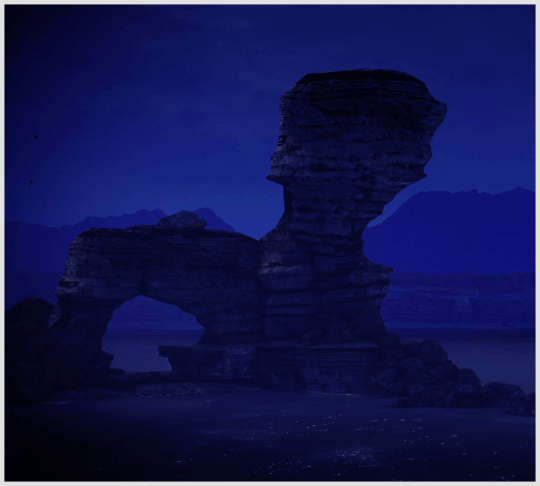

Rannoch
Mass Effect 3 in Gifs
#mass effect#mass effect 3#me3#gamingedit#mass effect edit#mass effect gif#gamingscenery#gaming edit#me3gif#rannoch
18 notes
·
View notes
Text
LOCH RANNOCH/ STANDING STONES
Sam...
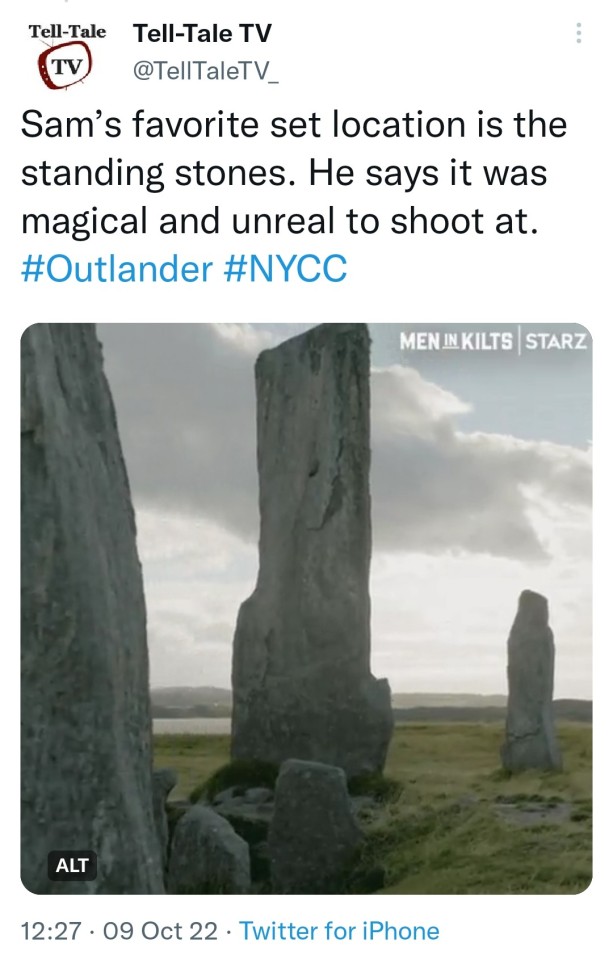
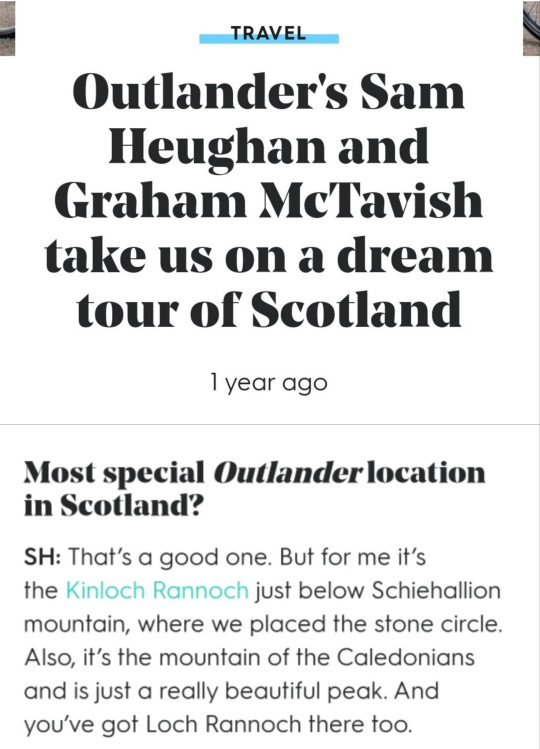
Cait...

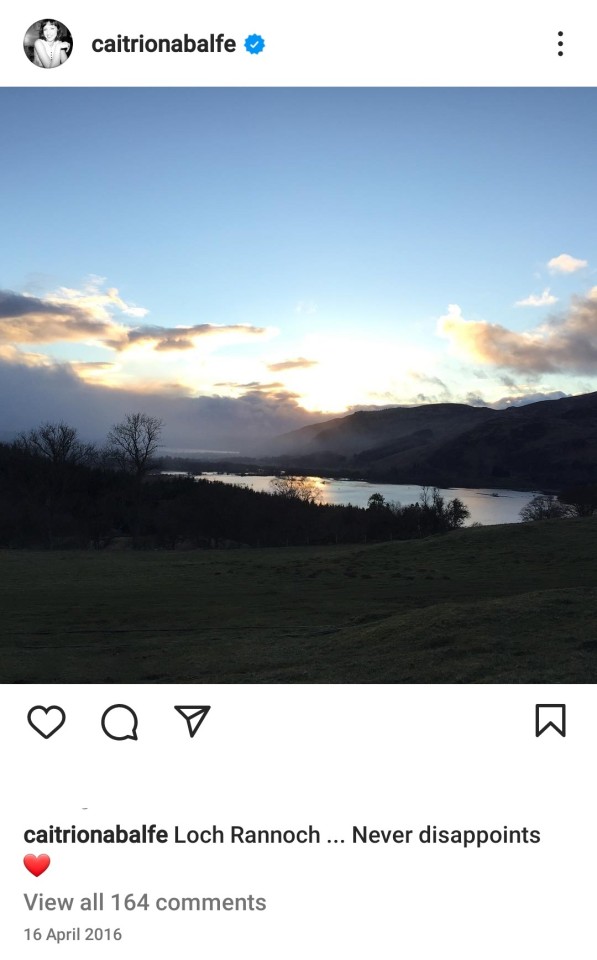
A special and MAGICAL place for them🥰🥰🥰
#sam heughan#caitriona balfe#sam and caitriona#outlander#location#rannoch#standing stones#coincidences
173 notes
·
View notes
Text

MarInk Day 31: Fire
A good ol' Rannoch to close off MarInk! This has been the final piece in this art challenge and I'm glad to have completed it! I was wondering around the day 23 point if I was going to be able to finish it within March, but I managed!
As for future drawing challenges I'm not sure which one(s) I'll be doing! I may do Inktober if I'm able to, or I might make up something myself like I did with Navamber last year. I also really /want/ to do another Navember with new prompts but I'd have to think of new ones then which is difficult.
If you have a favorite piece of this drawing challenge feel free to let me know!
#fanart#artists on tumblr#traditional art#fire bringer#deer#red deer#rannoch#david clement-davies#marink#inktober#my art#art
5 notes
·
View notes
Text
Okay not sure if anyone else has pointed this out but the end scene of Priority: Rannoch where Tali stands up to look at view and remarks that it is beautiful, Shepard doesn't turn to look to agree. Shepard is looking at Rannoch through the reflection on Tali's helmet. Seeing her home planet's beauty through her eyes almost. That scene always gets me because of that little detail.
6 notes
·
View notes
Text
Pandoras Box
A snippet from the next chapter, exploring why Eris made a certain decision despite having the ability to broker peace.
“Am I not doing my job?”
She hurled the question into her silent, empty cabin; with choices and alternatives becoming ever scarcer each time she stepped off the ship, she felt drained, right down to her rotting roots.
Does this unit have a soul?
Even after they almost spaced her whilst Kaidan and Thane watched helplessly, she continued her attempts to negotiate peace and still they clung to a petty squabble from centuries past, refusing to give an inch.
They’d already taken a mile of mercy from her.
A word the Reapers had no concept of, and with the Quarians playing the same role as the Reapers, seeking to commit genocide, doing the very thing she fought to stop, they forced her to become them.
If she failed, everyone would die.
Everything Eris thought she knew about herself vanished in a cluster of seconds during which ignored Tali’s pleas for one last attempt and gave the nod to the Geth, allowing them to retaliate. slaughter the Quarians, crushing anyone in her way under the heel of her boot
She stood alone, gulping for air, asking the question
“Am I not doing my job?”
of nobody, again and again, shedding her layers of armour off in a frenzy, dropping pieces all over her floor.
#mass effect fanfic#mass effect fanfiction#femshep#mass effect#angst#rannoch#ruthless renegade#renegade shepard#earthborn shepard#morally grey characters#ruthlesscalculus#victoryatanycost
3 notes
·
View notes
Text
Happy SpecReqs 2023, @alyssalenko! I didn't have time to make you a treat with some spice, but here is something else for you! I hope you liked it.
~~~~
Title: Worth Fighting For
Summary:
Shepard is sent to save Admiral Zaal'Koris, but there's a complication. She has to choose between him and the civilians who crashed on the planet with him. Civilians who are being protected by the the man she loves.
As if the war with the Reapers hadn't taken enough from her...
Words: 2738
Rating: T
Relationship: Kal'Reegar/Female Shepard
Additional Tags: Fix It Fic, Rannoch, Geth, Quarians, Referenced Character Death, ME3, Minor Injuries, Angst, Established Relationship
Read on AO3
~~~~
“Admiral! Can you hear me?”
The comms were still fuzzy, but with the jammer offline, Admiral Zaal’Koris came back clear enough that she could at least make out the words. It took a moment to adjust the frequency but finally his modulated voice spoke in her ear.
“Dorn! Are you there?”
Tali and Garrus hurried ahead to the shuttle, the thrusters firing up for takeoff. It wouldn’t take long for them to fly to wherever the Admiral had crashed. Then they needed to get to the Normandy, confer with the other Admirals, and figure out a plan to take the planet back. It was a simple enough task, but if there was anything that Shepard could count on, nothing was ever that easy.
“I’m sorry, Admiral. Dorn didn’t make it.” She glanced back at the fallen quarian with a pang of guilt. Too many lost in this war already. And here she was trying to stop more from dying. But they still had a job to do and not much time left to do it. “Give me your coordinates and we’ll get the shuttle to you.”
Her feet landed on the floor of the shuttle as his response arrived. “My surviving crew found their way to a clearing. I’ll upload their location.”
Her omnitool pinged a moment later and she glanced at the message quickly before relaying it to Cortez. He immediately got the shuttle in the air, headed for their waypoint. Shepard stared at the passing scenery, wishing she was visiting Rannoch and not fighting to save it.
“Stay together. We’re on the way.”
“No, the geth have cut me off. I hear another wave approaching.” The sound of gunfire was clear in the background. Zaal’Koris was fighting for his life.
Gripping the side of the shuttle, Shepard waited for the noise to clear.
“How many?” If they could get to him, maybe they could finally finish a centuries long war.
“It doesn’t matter. Continue to my crew.”
“Admiral,” Shepard began, glancing at Tali and knowing that this wasn’t going to be a choice she could make. The other quarians were important, all of their people were, but not as important as the Admiral of the civilian fleet. Without Koris, they would get obliterated by the geth. “Your people need you. If you don’t return-”
“These are civilians, Shepard.” Koris snapped, the emotional toil of the fight finally making him crack, the pressure too great even for a man who’d seen so much war. “They’ll die against the geth.”
“So will you!”
“Save my people, Shepard. Kal’Reegar can’t protect them alone.”
It felt like a stone settled in her gut at the name. Reegar. Closing her eyes, she sucked in a tight breath, her heart pounding in her ears as she realized she’d have to choose. Choose between the Admiral that could help end this war… or the man that she loved.
She hadn’t even known Reegar was on Rannoch.
What sort of girlfriend did that make her?
She’d barely spoken to him during this war, so many other things kept her attention but he was here… he was so close and now she had to choose whether he would be just another name on a memorial at the end of this.
The soft touch of Tali’s hand on her arm pulled her from a downward spiral and her eyes met her friend’s through the visor of her helmet, knowing that she couldn’t do this. If she condemned Koris, the entire fleet was at risk. And she knew that. He was more important than a marine, more important than those civilians.
It didn’t make it any easier.
She would’ve given anything to swap places with Reegar, knowing that she would regret this decision for the rest of her life. However long that was.
“Without you, Admiral, the entire fleet is lost. Please.”
She knew her voice broke on the please and knew that her friends heard her.
Garrus stepped forward as the Admiral relented, uploading his coordinates to her omnitool. “Shepard-”
“Don’t, Garrus. We have a mission to complete.” She turned away, entering the small cockpit of the shuttle and collapsing into the copilot seat.
Silence descended as Cortez entered the new coordinates, trying his best to focus on the instruments in his hands. But he glanced at Shepard a minute later, a look of understanding on his face. “Ma’am-”
“Please, Steve. I… can’t talk about this right now.”
“I have a solution.” He continued, ignoring her. Any other day, she might’ve be upset that he was refusing to listen to orders, but well… “I can drop you and Tali off on that landing there.” He pointed into the distance at a flat outcropping of rock about a half mile away. “It’s close enough to the civilians that you should be able to get to them in time.”
“What about the Admiral? He’s the entire reason we’re here.”
“Garrus can use the minigun to keep the geth off of the Admiral until he makes it to the shuttle. Then we’ll swing back for the civilians.”
Hope settled in her chest, a tinder of a fire that threatened to consume her if she thought about it too much. What if they were too late? If they concentrated on saving the civilians and Garrus couldn’t get Koris to safety, what then? And if she had to see Reegar die anyway? Could she handle that?
Steve glanced at her, eyebrows raised. He knew the fear of losing someone you loved more than anyone else. “Orders, Ma’am?”
“Fuck.” She muttered before opening her comm channel to Tali and Garrus. “Tali, get your gear. We’re going to save those civilians.”
Cortez nodded, positioning the shuttle to do a jump landing.
“Garrus- I need you to bring that Admiral back safely. Understood?”
“Anything for you, Shepard.”
She hoped this was the right call because if it wasn’t, she could lose everyone.
~~~~
Bullets ricocheted off of cliff face she’d found cover behind and Shepard winced, trying to keep her fear contained. She wasn’t afraid of the Geth or even the Reapers at this point. No, fighting synthetics that wanted her entire species to cease existing was a normal day. Somehow, she knew it should concern her more than it did but at that very moment, she was more worried about the quarians that were huddled together behind a few rocks and scattered crates. The AA towers had taken their shuttle out and this was what was left of those who’d been inside.
They hadn’t counted on the heavy geth presence.
Now they were pinned down with no escape, their only hope of survival being Shepard and Tali who were also being attacked by the bulk of the geth force.
“Dammit!” She shouted, loud enough that Tali glanced at her, a dangerous move when they were being actively shot at. “Any ideas, Tal?”
“If I can hack the Prime, we might be able to wipe out most of the geth before they close in on the civilians.”
It was a big if, but it would definitely take the pressure off of Reegar and the other quarians. He was still firing from wherever he was, but she hadn’t been able to contact him, the geth jamming their short range comms.
“I’ll try to get its attention. Just be ready.”
Shepard didn’t wait for a response. She gripped her gun tightly and left cover, aiming her Carnifax at the Geth Prime that was headed for the civilians. A few shots bounced off of its shields, sparking briefly, but it didn’t fail. Not yet.
She crouched behind a large rock as the geth aimed rockets in her direction, the explosions setting off alarms on her suit. Gritting her teeth, she waited for them to end before popping up, firing off a few more shots. It did little to damage them, but it kept them from hurting the quarians.
Then the Prime caught sight of her.
It ran in her direction, its much larger legs carrying it to her hiding spot quicker than any organic would be capable of. She fired another couple shots, feeling a small amount of relief as its shields shattered in a shower of sparks, leaving it open for Tali.
“Tali, now!”
Omnitool glowing, Tali lifted her arm and sent her hack program at the geth. It glowed for a moment and halted, nearly falling to the ground with the speed it was going. Then it lifted its rifle.
“Uh, Tali.”
Suddenly, it turned towards the other geth, firing on them before the machines realized what was happening. The rest of the fight was over in less than a minute. The Prime stood over the graves of its soldiers before bursting into pieces, leaving nothing but a husk of metal behind.
The battlefield fell silent, the geth smoking and sparking. It took a moment for Shepard to realize the fight was over, her heart pounding in her ears.
Mumblings from the civilians floated towards her, reminding her of the urgency of their mission.
“Tali, check on the others.” She ordered, finding her feet despite the sudden drop in adrenaline. “Make sure no one is injured and call the shuttle.”
Tali hurried to the small group of quarians that began to appear in the clearing, omnitool out to scan them for injuries. Many looked more traumatized than hurt and she hoped that was true of Kal’Reegar as well.
Shepard took a step, then another, and once she was positive her legs wouldn’t give out, she practically ran to where she’d last seen Reegar. As she tore around the corner, relief crashed over her at the sight of him leaning against a boulder, injured but breathing.
He laughed slightly, breathlessly, raising a weak hand at the sight of her. “Ma’am.”
She collapsed at his feet, adrenaline and fear disappearing only to be replaced by exhaustion. Reegar reached a hand out towards her and she took it in hers. Blood stained his red envirosuit, but she couldn’t see an injury. They didn’t have much time, the shuttle would be landing soon, and Chakwas would need to check him and the others for things Tali couldn’t.
She moved closer until she could press her helmet against his faceplate, tears streaming down her cheeks. He squeezed her hand slightly, as much as he could in his condition, a relieved sigh leaving him.
“You’re the most beautiful thing I’ve seen all day.”
She sniffed before a small laugh escaped her. “Save it for the ship, soldier.”
She could hear the smile in his voice when he responded. “Yes, Ma’am.”
~~~~
Shepard heard Garrus’ voice, subvocals wavering slightly, as she approached the medbay. She paused, taking a breath to steady her nerves, knowing that rushing in wouldn’t look good for the savior of the galaxy. But fuck it, she deserved this. After all of the sacrifices she made to get here, she deserved some hope for herself as well.
Everyone was safe, Rannoch was free from Reaper control, and now they were on their way to the Citadel.
Chakwas had assured her that Reegar would survive his ordeal. He’d be sick for the next week as his body fought off the infection from the suit breach. But he was strong and stubborn as hell. Much like Shepard, Chakwas had noted.
Shepard had laughed and with a shake of her head, said “that’s my guy.”
But now, she was terrified. Zaal’Koris had returned to the Fleet, saving the rest of the civilians there from making a mistake that would’ve doomed them. The ‘what ifs’ of her choice still haunted her and she tried to push them away, but her choices dictated whether people died or not. So many things had gone wrong already in the war, so many people were being brought home in body bags.
Then there was Legion.
Brushing the tears from her eyes, she stepped into the bright medbay, seeking relief from her thoughts. Tali and Garrus stood on opposite sides of the only occupied bed. Reegar glanced up, his eyes shining through the face plate as he stared at her approach.
She ran a hand through her hair, trying to comb the knots out with her fingers, but they pulled painfully, making her scalp throb. “How are you feeling?”
“Almost normal, all things considered.” He shifted to lean against the pile of pillows behind him, patting the spot beside him. “So how many times have you saved my ass? Two? Three?”
“I lost count.” She teased, not feeling completely as easygoing as she sounded, but she’d put on a smile for him. Reegar didn’t need to carry her burdens. Not when he needed to heal.
“Does that make you my… what’s the human phrase?”
“Knight in shiny armor.” Garrus offered, mandibles twitching in amusement. She rolled her eyes at his obvious butchering of the saying.
When Tali broke out into giggles, Shepard sighed, rubbing at her temple. “It’s ‘knight in shining armor’. But you know that.”
Garrus clapped her on the shoulder, giving her the turian equivalent of a grin. “You know I love it when you make that face, Shepard. But I know when we’re not wanted.”
“Yeah? Why are you still here then?”
Garrus laughed, the sound almost like a purr. “Ouch, you wound me with your words.”
Tali gripped Garrus by his talon, pulling him towards the exit. “If you aren’t careful, Shepard will wound you with a gun, you bosh’tet.”
“Shepard doesn’t have the stones!”
As the door shut on their laughter, Kal glanced at her with a curious tilt of his head. “Are they always like this?”
She smiled fondly. As bothersome as they could be sometimes, she’d never trade Garrus or Tali for anyone. “Yes, but I love them. I couldn’t have done this without them.”
Silence fell between them, strained by the heaviness of what had happened. Of could have happened.
“You took a huge risk.” He said, quietly playing with the straw on the drink that Chakwas had given him. “If the Admiral fell-”
“I know.” She whispered, closing her eyes and knowing that she’d made the wrong choice, but her heart refused to acknowledge it because it had worked out in the end. She couldn’t imagine the alternative. “Hackett’s already given me hell for it. You don’t need to.”
Reegar sighed, the sound strange with his helmet on. “I’m not trying to give you shit. I find it hard to believe my life is worth an Admiral’s.”
“There was more than your life on the line-”
“I’m a marine, Shepard. I know the deal. But somehow, you keep doing the impossible.” Reegar leaned forward, taking her hand in his. With his free hand, he brushed a digit over her eyelids, making a distressed sound low in his throat. “When was the last time you slept?”
With a groan, she ran a hand down her face. “I don’t know. Last year?”
Reegar caught her hand and tugged her closer. “Come here.”
“You’re hurt.” She protested, refusing to let him injure himself further for her.
“I’ll live. You, on the other hand, need to rest. You can’t save the rest of the galaxy without sleep.”
When he tugged on her hand again, Shepard gave in and crawled into the bed with him, resting her head on his chest. He covered them with the white blanket, waiting for her to get comfort before he laid his head against hers. She snuggled into his body, the warmth of him beside her, knowing that he was alive and safe and here with her was more than she imagined.
This war had taken so much from her, from all of them, but if she could take something for herself, just this once, she’d be grateful.
Turning her head slightly, she pressed a kiss against his shoulder, eager for the day when they would finally be able to rest together, no envirosuits, no wars, nothing to worry about but them. “Are you really here?”
He tightened his grip on her, a quick intake of breath the only sign he couldn’t believe it either. “Yes. And I’m not going anywhere. You helped us win Rannoch back. I’ll be there when you go to Earth.”
She swallowed down tears, burying her face into his chest as her exhaustion finally won. “I love you so much, Kal.”
As she finally drifted to sleep, she heard him whisper, “I love you too.”
#specreqs2023#mass effect#mass effect fanfic#my writing#alyssalenko#femshep#female shepard#kal’reeger#femshep x kal'reegar#tali'zorah vas normandy#garrus vakarian#angst#fix it fic#rannoch#mass effect 3#quarians#geth
25 notes
·
View notes
Photo


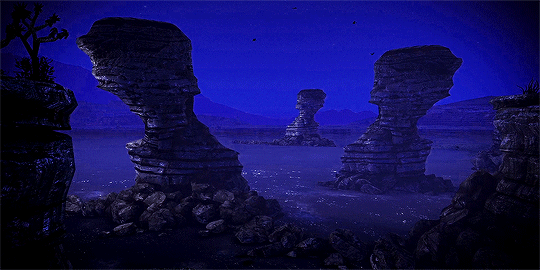

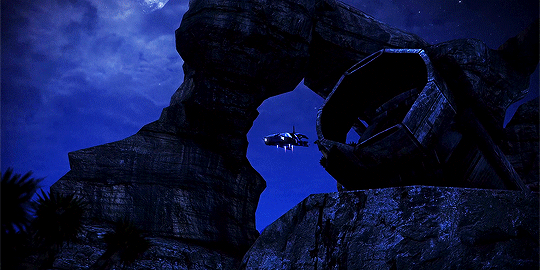
Mass Effect locations: RANNOCH
#mass effect#mass effect 3#rannoch#mass effect locations#meedit#masseffectedit#vgedit#gamingedit#videogameedit#mele#mine:me#mine#bioware#video games
245 notes
·
View notes
Text
Quarian biology headcannons:
Quarians have no exact analogue for Earth-based taxonomy. They do stand upright and give birth to live young, but they have more in common biologically with cynodonts than primates.
As a result, they can seem very reptilian.
Before development of proper civilizations, ancestors to modern quarians were pack hunting omnivores, though their diet was primarily carnivorous.
Quarians are strong runners, not only bipedally, but also quadrupedally.
Quarians evolved tails that can regenerate with cartiledge instead of bone, but they never evolved them away. It's an extremely common practice for modern quarians to dock tails, mostly for space in their ships and comfort in their suits. With proper cauterization, they can be permanently removed, but such a process is expensive and medically risky. The vast majority of quarians simply dock and sterilize with antihistamines, ointments, and anesthetics.
After Rannoch is reclaimed, many quarians opt to let their tails grow.
54 notes
·
View notes
Text

Artfight attack on @wrenchdogs
110 notes
·
View notes
Text
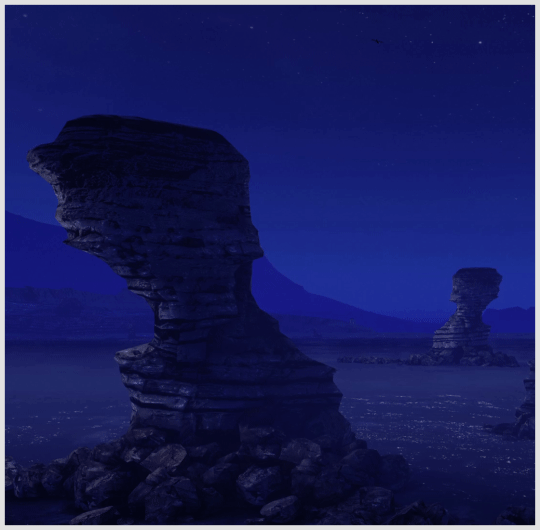

Rannoch
Mass Effect 3 in Gifs
#mass effect#mass effect 3#me3#gamingedit#mass effect edit#mass effect gif#gamingscenery#gaming edit#me3gif#rannoch
8 notes
·
View notes
Text
Nothing like having to go through the entire Priority: Rannoch mission 3 times on Insanity to finally make you turn on Quick Rannoch Reaper Battle on in the mod menu 😭
ALSO THOSE FUCKING GETH PRIMES MY VANGUARD WAS PINGING BETWEEN THE THREE OF THEM LIKE A GODDAMNED PINBALL
#rannoch#commander shepard#vanguard#project variety#mods#mass effect mods#mass effect#tali'zorah#legion#geth#quarian
10 notes
·
View notes
Text
Sometimes the journey goes too fast. The events, blur with the speed at which they pass...
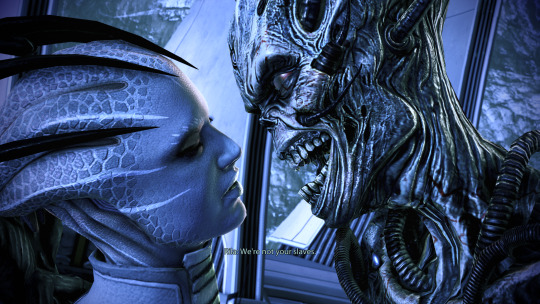
Saving Samara's last, youngest daughter from a fate far worse than death...

Praying with Thane and his son, only to find out that his last prayer, his last wish, was for you...

Giving Rannoch back to the Quarians, and ending their war with their own creations...
Sometimes... It goes too fast. You just want to breathe for a moment, but there's no time. So you check your weapons, make sure your armor is still viable, and you wade into the next moment, and the next, and next...
The reapers won't wait. So Rynn Shepard won't keep them waiting. Time to get back to it.
8 notes
·
View notes
